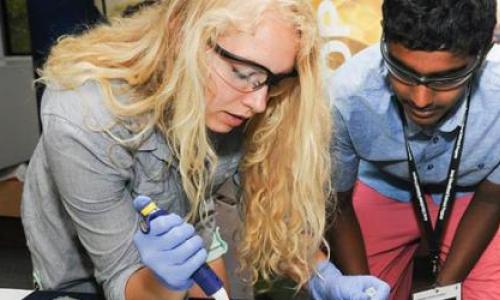
“A good manager doesn’t fire people, he hires people”
– Michael Scott, The Office
I’d be lying to you if I said that there wasn’t a lot of talk out there about some pretty negative stuff related to the job market for students these days. And, there’s probably good reason to be concerned: BC’s unemployment rate is currently a shameful 7.5% (higher in the interior), which is notably higher than the average unemployment rate of 6.0% for BC over the previous 10 years. With the woeful state of the economy, there comes a healthy dose of pessimism, and I’ve seen this in person many times over the last couple months in the form of students coming in to my office.
Well, being the hopeless optimist I am, I’ve decided to write today about a few reasons that I think students can be optimistic about their careers. In doing so I may fly in the face of simple logic, reason, common sense, and the known laws of physics. But, if it makes other people (read: me) feel better, does it really matter?

(there’s more jobs than you think out there)
Here’s a fun fact for you: around 80% of jobs are NEVER posted. But wait, before you get all excited and say, “That’s not good news at all!” stop and think about what this really means. If you’ve ever tried searching for work using advertised postings like online posting boards, classifieds, etc., and come out of the other end of that process feeling totally demoralized, demotivated, and defeated, you’re certainly not alone. I’ve been there. The good news is that there’s a lot more jobs out there than you even knew existed, probably about 80% more.
Why are these jobs never posted? It’s easy to answer that question if you think about it from an employer’s perspective: the last thing they want to do is to have to sort through hundreds of applications from their craigslist ad, screen a whole bunch of candidates, hold a bunch of interviews, and do all of that WORK, all so they can ultimately hire someone that they just met and aren’t sure they can trust. It makes a lot more sense to see if they can hire someone internally, or promote someone from a lower level position to the new job opening. Much less work, much less risk. If that’s not possible, they might spread the word around to their current employees to forward the job posting to people they might think would be qualified and/or interested in the position, adding one degree of separation to the process. If that doesn’t pan out, why not pay someone else to fill the position if they can afford to do so, instead of using their HR person’s valuable time? This is what staffing agencies do.
The last thing that most companies will do is post their job online. So why would you spend all of your job search time looking at online job ads? This is a very passive way to job search, and it makes far more sense to use a more active approach. Contact organizations that you would consider working for, inquire if they have openings, meet people in your field for information interviews so that you can be one of the people that they forward that job posting to. In doing so, you have learned one of the Zen secrets of tapping into the Hidden Job Market.

(goodbye baby boomers, hello millenials)
I like fun facts. Here’s another one: two of every three jobs created between 2006 and 2015 will have been to replace retiring workers. That’s projected to be a stronger driver of labour demand than economic growth. It’s also why certain jobs, like anything in health care, or funeral directors, etc., are predicted to grow very strongly in order to take care of our aging population. Even if the economic recession delays age of retirement somewhat, a plethora of jobs will eventually be created from retirement.
(money, that is)
What’s that? You want another fun fact? Well okay then. Guys, simply by virtue of having a post-secondary degree, you will earn 40% more than your contemporaries that only have a high school diploma. Ladies, that same number jumps up to 50% for you. This is a widening gap, and it already may be the widest that it’s ever been.
Isn’t that good news?!
We’re in the age of what the industry folk call a “knowledge-based economy.” This is in contrast to what was previously a “resource-based economy” in Canada. Because of this shift, the value of a post-secondary degree has actually gone up (which goes against the popular belief, illustrated in a recent article inThe Peak, SFU’s student newspaper, that everyone and his dog has a BA and therefore it’s rather worthless, though I wholeheartedly agree with the general sentiment of the article and the author’s stance on the value of cooperative education).

So there are my top three reasons to be optimistic if you’re a student wondering about how you’re going to make it in the world with that lonely piece of paper called a degree that you’re working towards. Keep your chin up! You don’t have to defy gravity to have a happy career (but if you do, give me a call. That would be awesome).














